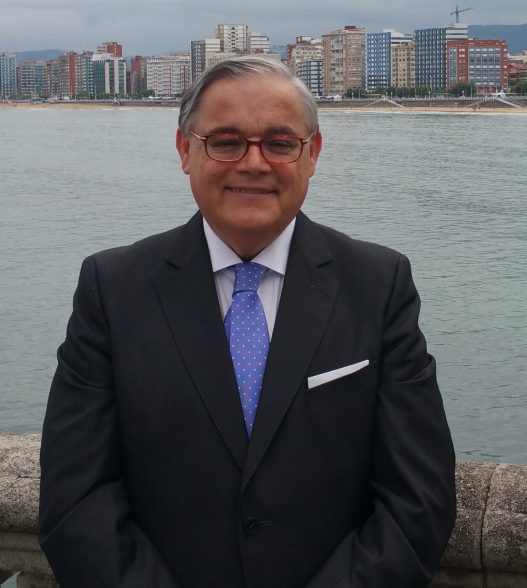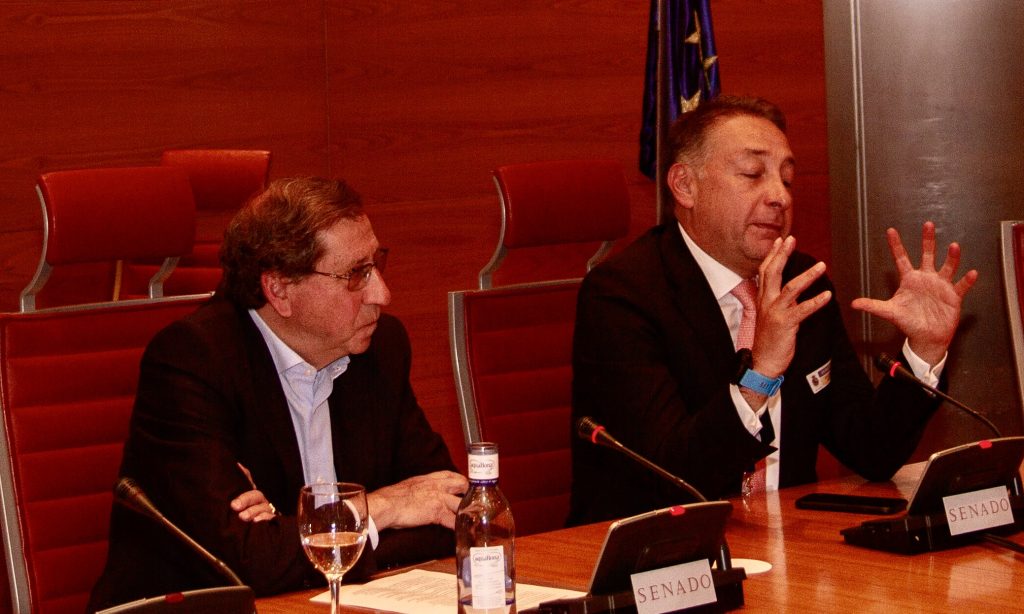ALBERTO BARCIELA
OPORTO

April 19, 2024
Porto can be followed in the meandering direction of a river, or in the vertical of an ocean, ascending or descending through meanders embedded in streets that sometimes resemble cliffs, which always plunge into water, a universal city close to the time it has had to live and, at the same time, mirrored in a rich history that preludes a certain future, which invites to live the moment, to hatch moments of surprising avant-garde freshness.
The city, like its streetcars, resembles a swaying, a coming and going of its own know-how, truffled with its instincts, permeable to new trends. Admired yes, nothing stops in a kind offer, attentive to offer the best of itself, of its urban audacities with its constraints. Her eagerness is always flirtatious. Its delicate femininity shows itself to the curious, citizen or visitor, with the taste of permanent surprise: a shop window, a character, a music, a perspective… The retina is excited, here, there, there, there, there is always where to go, without fear of getting lost… And the smells impose themselves as aromas of the Orient. In this place, the aroma of freshly baked bakery; there, of roasted coffee; there, the marine, salty contributions of the refreshing breeze; always, everywhere, the opportunity of the essence of a Douro or a Port wine served at a sunny table, while reading a newspaper or a local magazine, in a wine cellar, on a walk along the Douro, in a square, in the gardens of the Serralves Foundation or from the confronted Maia. Everything acquires human dimensions, comprehensible, understandable, admirable, Porto is the stalls of itself, a city that leans back to admire itself in a mirrored, spectacular way.
The mythical port is reality, the magic of the city itself is reality, as are the breathtaking Eiffelian bridges or the expertise of the local engineers – comparable in excellence only to its architects -, the promenades, the parks, the buildings – such as the Palace of the City of Oporto, the palaces and the palaces of the city, the buildings -such as the Palacio de la Bolsa, the old hotels-, the bell towers -the Torre de los Clérigos-, its stores, bookstores -like the Lelo- and art galleries, its museums, its theaters, its own coquettish airport, the best communicated -the Metro is coming-…. The Baroque here, the Neoclassical there, the avant-garde that lurks… Oporto knows itself, likes itself and is savored especially by streetcar or on foot… it demands at all times slow, leisurely transits, like eighteenth-century rhythms, romantic because one falls in love with every corner, and admits to sit with pleasure in its parks to chat with its friendly citizens.
Nothing inopportune, everything here is admirable, a positive sum that extends, replicates and renews itself. So do its artistic glazed tiles, intricate in implausible geometries, varied in a thousand contrasts between whites, blues, yellows, greens, reds, oranges… ceramics that tell religious, mythological stories… they scale and enrich, they are brilliant ornaments in the end, like the Atlantic light, iodized, that imposes itself on the horizon predisposed to dazzling, unique sunsets. So do its port suburbs. So do its narrow cobblestone streets. So does the admired literature that narrates the city as an endless tale, always, I add, with a happy ending in a good restaurant, tasting a green broth, a cod in a thousand ways -broa, ze do pipo, en bolinhas…-, some grilled sardines, a francesinha or a grilled meat and, to culminate, a cream cake. A toast to life, a return to sweet wine, the best in the world, as the English know well.
“Porto is like a love poem in every corner, a whisper of history in every alley”, Pablo Neruda sang it this way to the sensitive world to those who know how to admire the good and beautiful that a city stranded on fertile land, anchored at the end of a beautiful river, at the beginning of all horizons, has managed to become after the Carnation revolution in a world prima donna.
————
ALBERTO BARCIELA, Spanish journalist, is vice-president of EditoRed.
This text was originally published in Prensa Ibérica. It is reproduced here by permission of the author. If used, please cite the author.



